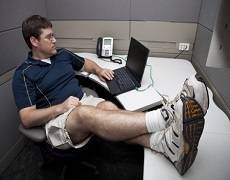December 17, 2013
Insight newsletter is now available to view online
 In the Insight newsletter, available to view online; cost is still viewed by businesses as the most important factor in assessing an office’s performance; a suspiciously high number of occupiers claim that their programmes of workplace change are successful; PwC’s nine-storey headquarters in London surpasses all BREEAM scores to date, and we review The Emergent Workplace – a new book which aims to help people make better decisions about their offices. Nigel Sikora discusses the challenges of ensuring the right level of acoustic and visual privacy within the workplace; Charles Marks says London may grab all the headlines but the creative and tech industries are thriving around the country and Richenda Oldham explains ways businesses can improve their knowledge of the range of costs involved in owning or leasing commercial real estate.
In the Insight newsletter, available to view online; cost is still viewed by businesses as the most important factor in assessing an office’s performance; a suspiciously high number of occupiers claim that their programmes of workplace change are successful; PwC’s nine-storey headquarters in London surpasses all BREEAM scores to date, and we review The Emergent Workplace – a new book which aims to help people make better decisions about their offices. Nigel Sikora discusses the challenges of ensuring the right level of acoustic and visual privacy within the workplace; Charles Marks says London may grab all the headlines but the creative and tech industries are thriving around the country and Richenda Oldham explains ways businesses can improve their knowledge of the range of costs involved in owning or leasing commercial real estate.























December 17, 2013
New survey reveals extent and nature of workplace change programmes
by Mark Eltringham • Comment, Facilities management, Property
The newly published Workplace Transformation Survey from property consultancy Cushman and Wakefield begins with the now routine statement that “there is no doubt the corporate workplace is rapidly transforming”. So tell us something we don’t know – and in the subsequent report they pretty much do. That said, the methodology of the survey does skew the results by focussing on a particular part of the workplace elephant, because the report was compiled in conjunction with CoreNet Global, based on a questionnaire of over 500 occupiers and other participants from around the world taking part in events in Los Angeles, Amsterdam and Shanghai. So inevitably the results are weighted to at least some degree in favour of those with an interest in commercial property and the regions from which it draws its data. (more…)